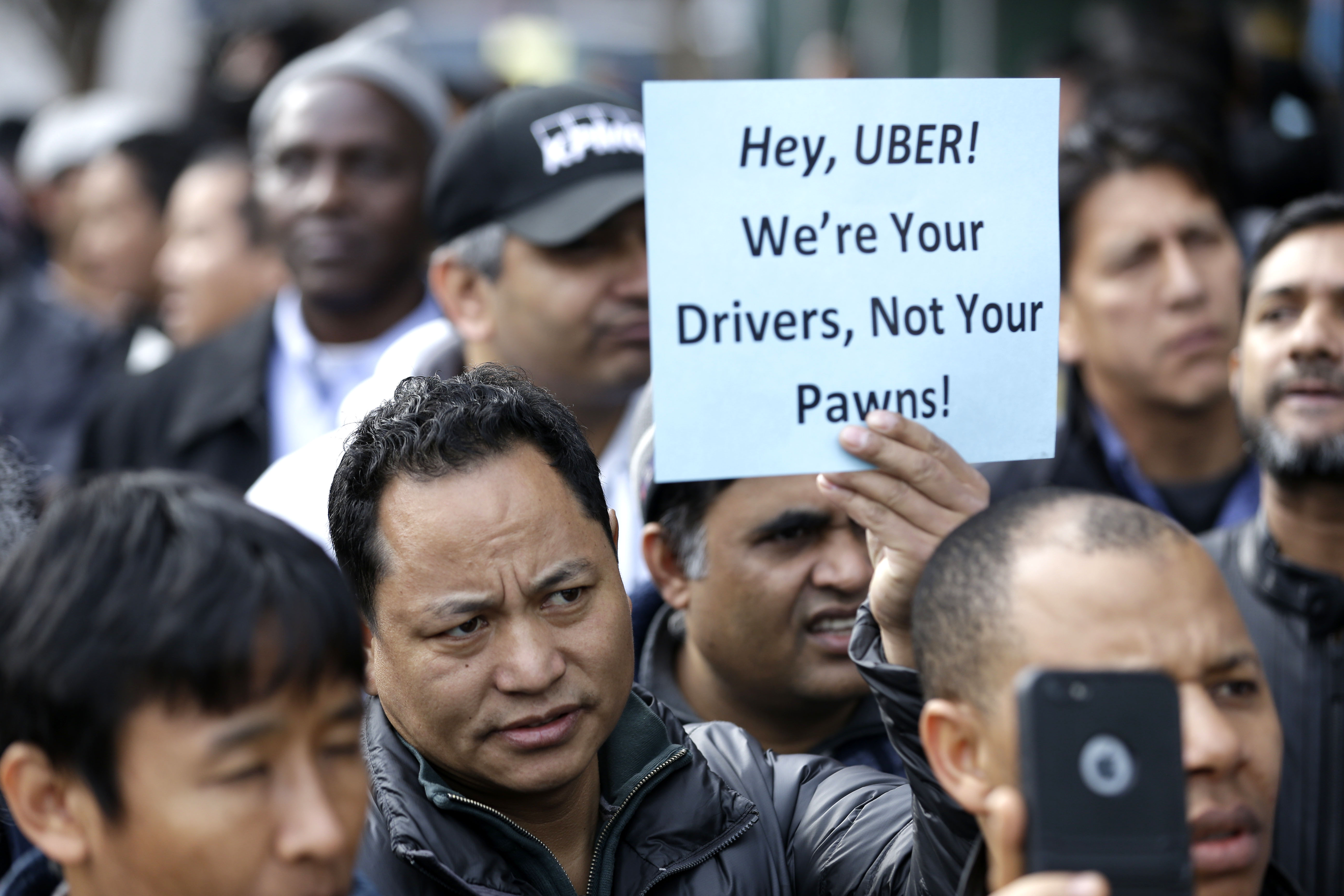Uber is still evil
The company may rein in some of its awful behavior, but its black heart will remain


A free daily email with the biggest news stories of the day – and the best features from TheWeek.com
You are now subscribed
Your newsletter sign-up was successful
Is a new day dawning for Uber? On Tuesday, the ride-sharing company's co-founder and CEO, Travis Kalanick, announced he's stepping down.
Despite a titanic market valuation of $70 billion, Uber has been dragged down by multiple scandals: Its office culture is allegedly plagued by sexual harassment and general abusiveness, it's under investigation for using coding gambits to fool regulators, and it's being sued for stealing autonomous car technology from a subsidiary of Google. Kalanick had already taken a temporary leave of absence, based on the recommendations of a blunt internal report on Uber's office culture. But ultimately some of Uber's major investors didn't think that was enough.
The popular narrative is that Uber is made in Kalanick's image. And that, in proper Shakespearean fashion, the greatest virtue of both man and company is also their greatest vice: "Travis' biggest strength is that he will run through a wall to accomplish his goals," Mark Cuban, the investor and Dallas Mavericks owner, told The New York Times.
The Week
Escape your echo chamber. Get the facts behind the news, plus analysis from multiple perspectives.

Sign up for The Week's Free Newsletters
From our morning news briefing to a weekly Good News Newsletter, get the best of The Week delivered directly to your inbox.
From our morning news briefing to a weekly Good News Newsletter, get the best of The Week delivered directly to your inbox.
But this gives far too much credit to Kalanick — not to mention to running through walls.
As terrible and dramatic as Uber's recent scandals are, they've also overshadowed the company's original sin: its relationship to its drivers.
Built into American law is the assumption that companies owe certain things to their workers: a minimum wage, overtime, medical leave, etc. Cultural norms have added things like retirement and health benefits on top of that package. But of course we have private contractors too. Which makes sense: Individuals or households can't really provide a minimum wage or health insurance for whomever they hire to patch up the drywall.
What Uber realized was that its business model was new and unusual enough that it could claim its drivers were private contractors, even when any sensible person on the ground would see it as just another major corporate institution employing individuals' labor. That saved Uber a ton with regard to its labor costs, allowing it to charge customers lower prices, while at the same time raking in major revenue and gobbling up market share. That Uber's major competitors were city taxi companies, which really are sclerotic licensing cartels, gave this project a certain sheen of beneficence. But ultimately the "efficiencies" Uber discovered came mainly from gaming the conceptual categories of U.S. labor regulations and evading Americans' basic moral instincts about how businesses should treat workers.
A free daily email with the biggest news stories of the day – and the best features from TheWeek.com
This problem is still nowhere close to being resolved. Uber has angered regulators at various levels of government, and may well pay fines for that. But the idea that policy changes should actively force Uber to treat its drivers as full-time employees is still considered uncomfortably radical. Meanwhile, it's still an open question how the courts will respond.
Now, a lot of people will draw a line between these various things: Creating an office culture that encourages sexual harassment or stealing a competitor's intellectual property? Those things are unacceptable and rightfully condemned as basic violations of human decency. But aggressively acting to hold down labor costs, and trying to get around regulations? That's just business.
But it really shouldn't be viewed as such. It's still breaking the spirit of the law, if not its letter, and it's also morally corrupt.
So while the movement among ride-sharing customers to #DeleteUber is laudable, it has a blind spot. Competitors like Lyft just drape a more cuddly aesthetic over Uber's same basic set of economic incentives. Lyft's business model is effectively the same as its more hard-charging competitor. (It even uses arbitration clauses to squash drivers' ability to take collective action against abuses.)
Voluntary efforts to change Uber's twisted culture are incredibly important. But they can't be a conclusive solution. That will only come from systemic policy changes — delivered by the heavy hand of the government — that affect its business model.
Uber may well rein in some aspects of its awful behavior going forward. But the core of the company will remain, and Uber isn't going to give that up voluntarily.
Jeff Spross was the economics and business correspondent at TheWeek.com. He was previously a reporter at ThinkProgress.
-
 5 cinematic cartoons about Bezos betting big on 'Melania'
5 cinematic cartoons about Bezos betting big on 'Melania'Cartoons Artists take on a girlboss, a fetching newspaper, and more
-
 The fall of the generals: China’s military purge
The fall of the generals: China’s military purgeIn the Spotlight Xi Jinping’s extraordinary removal of senior general proves that no-one is safe from anti-corruption drive that has investigated millions
-
 Why the Gorton and Denton by-election is a ‘Frankenstein’s monster’
Why the Gorton and Denton by-election is a ‘Frankenstein’s monster’Talking Point Reform and the Greens have the Labour seat in their sights, but the constituency’s complex demographics make messaging tricky
